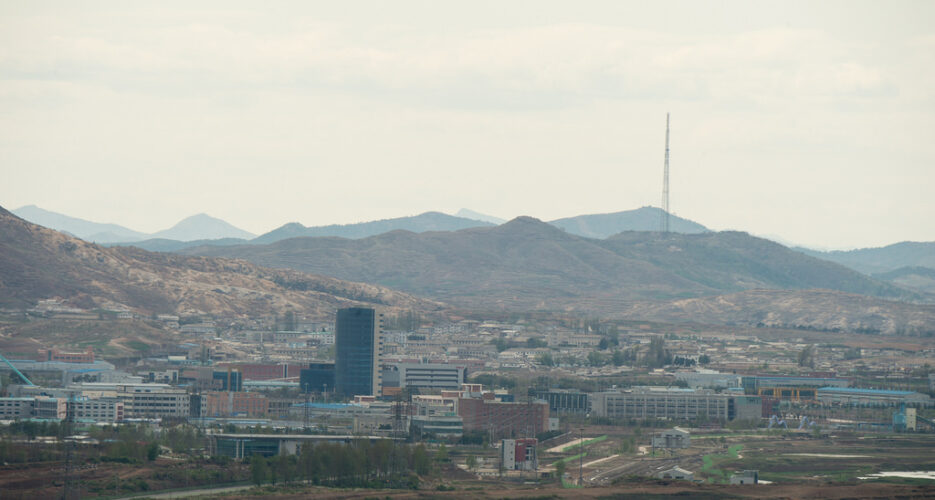Seoul will review the opening of a joint liaison office with North Korea in Kaesong as negotiations between Washington and Pyongyang hit a stumbling block, the Blue House announced on Monday.
The news came after U.S. President Donald Trump's decision on Friday to cancel his Secretary of State's planned trip to the DPRK, citing a lack of progress on denuclearization.
Seoul will review the opening of a joint liaison office with North Korea in Kaesong as negotiations between Washington and Pyongyang hit a stumbling block, the Blue House announced on Monday.
The news came after U.S. President Donald Trump's decision on Friday to cancel his Secretary of State's planned trip to the DPRK, citing a lack of progress on denuclearization.
Become a member for less than $4 per week.
Unlimited access to all of NK News: reporting, investigations, analysis
The NK News Daily Update, an email newsletter to keep you in the loop
Searchable archive of all content, photo galleries, special columns
Contact NK News reporters with tips or requests for reporting
Get unlimited access to all NK News content, including original reporting, investigations, and analyses by our team of DPRK experts.
Subscribe now
All major cards accepted. No commitments – you can cancel any time.
